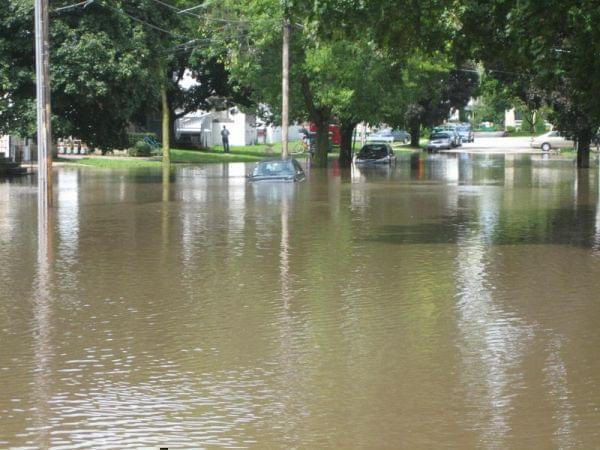Climate Change in Illinois Means Frequent Flooding Could Be Normal Within A Decade

The Kishwaukee River at Dekalb flood of 2007. Illinois climatologist Jim Angel says flooding remains the state's biggest danger if global warming continues Wikimedia Commons/ Https://creativecommons.org/licenses/by-sa/3.0/
An international panel on climate change this week warned greenhouse gas emissions will keep increasing if left unchecked and called for urgent action. According to one Illinois scientist, that means frequent heavy rain events and flooding could become the norm.
Jim Angel is the state’s leading expert on climate change. As Illinois’ climatologist, he studies changes in precipitation, and watches for spikes in heavy rainfall. Recently, temperature changes around the world have been leading to more downpours here in Illinois.
“Those are the ones that cause the flooding, the erosion, and all the damages that we see across Illinois,” he said.
Angel says the increased rain is a financial drain on farmers, who stand to lose more crops to flooding.
The UN report itself calls for "unprecedented changes" in global energy production and agriculture. Angel says that would take massive effort, especially from the U-S.
“The only thing I could compare it to would be what we did in World War II, where we went from a peacetime economy to a wartime economy." he explained. "We did a remarkable turnaround there. That’s kind of what we would have to do to meet these kind of goals moving forward.”
Things like limiting vehicle emissions, reducing food waste and producing less meat could help reach that goal. But changes like that, Angel says, are needed sooner than later. And he’s worried few will heed the call.
Right now, Illinois and the US together give off about 15 percent of the world’s CO2 emissions, second only to China.

